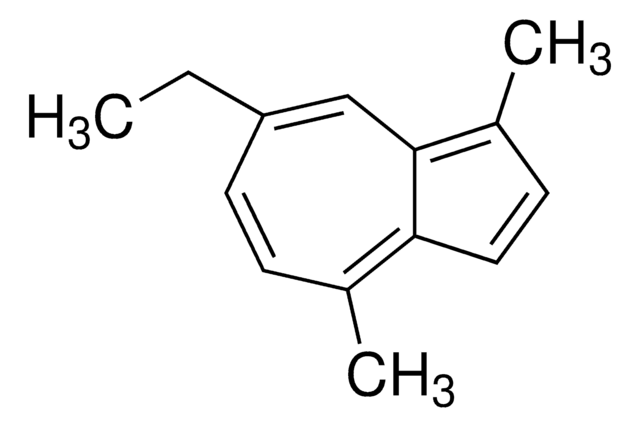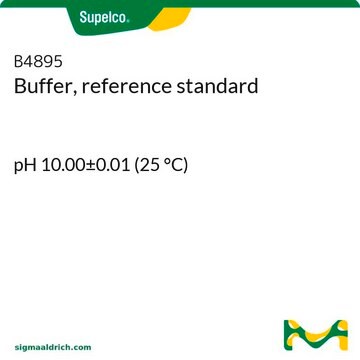00320188
(−)-α-Bisabolol
primary reference standard
Synonym(s):
(−)-6-Methyl-2-(4-methyl-3-cyclohexen-1-yl)-5-hepten-2-ol, Levomenol
About This Item
Recommended Products
grade
primary reference standard
shelf life
limited shelf life, expiry date on the label
manufacturer/tradename
HWI
storage temp.
−20°C
SMILES string
C\C(C)=C\CC[C@](C)(O)[C@H]1CCC(C)=CC1
InChI
1S/C15H26O/c1-12(2)6-5-11-15(4,16)14-9-7-13(3)8-10-14/h6-7,14,16H,5,8-11H2,1-4H3/t14-,15+/m1/s1
InChI key
RGZSQWQPBWRIAQ-CABCVRRESA-N
Looking for similar products? Visit Product Comparison Guide
General description
Exact content by quantitative NMR can be found on the certificate.
Application
Other Notes
Hazard Statements
Precautionary Statements
Hazard Classifications
Aquatic Chronic 3
Storage Class Code
10 - Combustible liquids
WGK
WGK 1
Flash Point(F)
289.4 °F - closed cup
Flash Point(C)
143 °C - closed cup
Choose from one of the most recent versions:
Certificates of Analysis (COA)
Don't see the Right Version?
If you require a particular version, you can look up a specific certificate by the Lot or Batch number.
Already Own This Product?
Find documentation for the products that you have recently purchased in the Document Library.
Our team of scientists has experience in all areas of research including Life Science, Material Science, Chemical Synthesis, Chromatography, Analytical and many others.
Contact Technical Service



